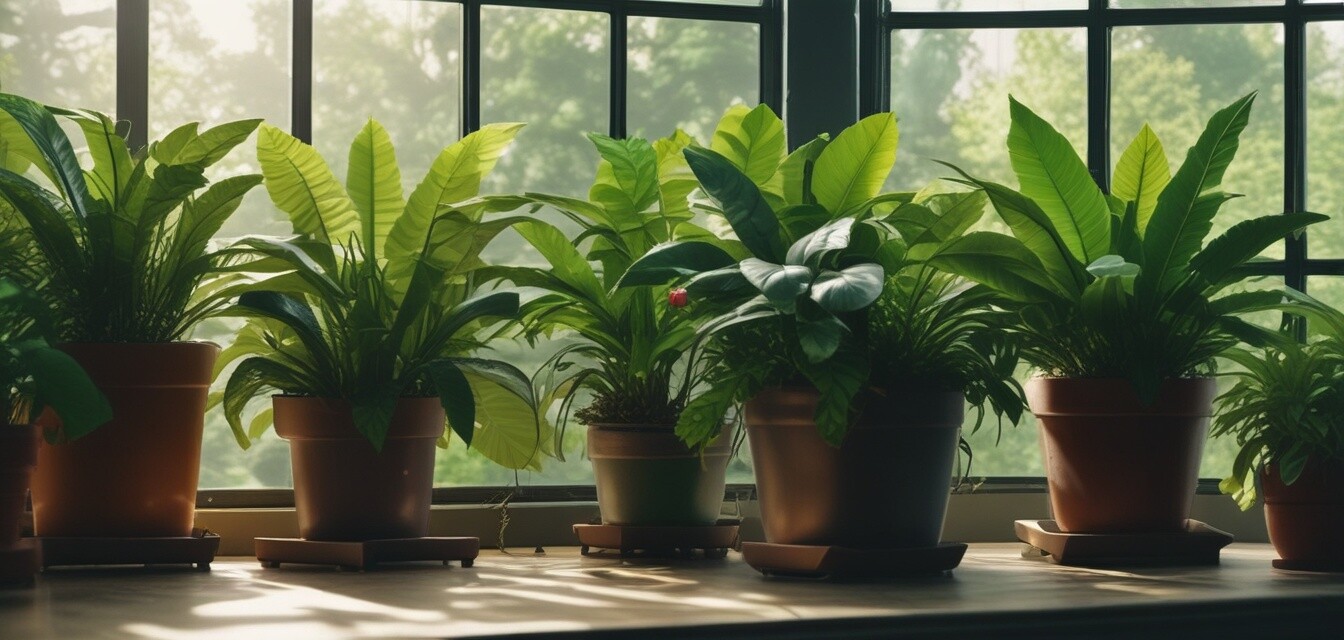
The Best Houseplants for Clean Indoor Air
- Houseplants can significantly improve indoor air quality.
- Popular air-purifying plants include Spider Plant, Snake Plant, and Peace Lily.
- Urban balcony gardening allows for creative planting solutions.
- Regular maintenance and proper light conditions are essential for plant health.
- Eco-friendly gardening practices can enhance your indoor environment.
Bringing greenery into your home is not just aesthetically pleasing—it can also make a world of difference for your indoor air quality. In urban settings, where pollution and dust can be rampant, houseplants serve as natural air purifiers. This article will explore the best houseplants for clean indoor air, highlighting their benefits, care tips, and how to best incorporate them into your urban balcony garden.
Why choose houseplants for indoor air quality?
Houseplants are more than just beautiful decor; they actively contribute to the health of your environment. Research indicates that certain plants can absorb harmful toxins, improve humidity, and even reduce stress levels. Here are a few reasons to consider adding houseplants to your indoor space:
- Natural air purification
- Improved humidity levels
- Enhanced mood and productivity
- Reduction of noise levels
Top houseplants for clean indoor air
Below is a list of some of the best houseplants recognized for their air-purifying abilities:
| Houseplant | Benefits | Care Level |
|---|---|---|
| Spider Plant | Removes formaldehyde and xylene | Easy |
| Snake Plant | Filters out toxins like benzene and formaldehyde | Low |
| Peace Lily | Absorbs ammonia, benzene, and formaldehyde | Moderate |
| Boston Fern | Excellent at absorbing formaldehyde | Moderate |
| Aloe Vera | Removes formaldehyde and benzene | Low |
| Areca Palm | Great at humidifying air and removing toxins | Moderate |
Tips for maintaining your houseplants
To ensure your houseplants thrive indoors, consider the following maintenance tips:
- Choose the right location with appropriate light for each plant.
- Water plants according to their specific needs—overwatering can be detrimental.
- Use well-draining pots and soil to prevent root rot.
- Dust leaves regularly to maximize their air-filtering abilities.
- Fertilize during the growing season for optimal growth.
Creating a balcony garden
For urban dwellers, balconies offer a unique opportunity to create a mini-garden. Here are some ideas to maximize your balcony garden space with air-purifying plants:
- Utilize vertical gardening techniques to save space.
- Incorporate balcony-friendly furniture for a comfortable gardening experience.
- Consider using pots that complement your balcony's aesthetic.
- Mix herbs and decorative plants for a multi-functional garden.
Check out our guide on balcony accessories to enhance your gardening experience!
Emerging trends in balcony gardening
As the trend of urban gardening continues to rise, more individuals are seeking ways to create eco-friendly and sustainable indoor spaces. Here are a few notable trends:
- Hydroponic systems are gaining popularity for growing plants without soil.
- Smart gardening devices help monitor plant health and automate care.
- Community gardening initiatives encourage urban dwellers to connect through gardening.
- Use of recycled materials for planting pots and garden decor promotes sustainability.
For more insights on sustainable gardening practices, visit our News and Trends section.
Conclusion
Incorporating houseplants into your urban balcony garden not only beautifies your living space but also contributes to a healthier environment. Selecting the right plants, maintaining them properly, and staying updated with the latest gardening trends can yield a thriving indoor atmosphere. Make your balcony a clean, green oasis with the perfect houseplants for indoor air quality.
Pros
- Improves indoor air quality
- Enhances aesthetics and ambiance
- Easy to incorporate into small spaces
- Can boost mood and productivity
Cons
- Some plants require specific care
- Potential pest issues if not maintained
- Not all plants may thrive indoors
- Allergies to certain plants can occur